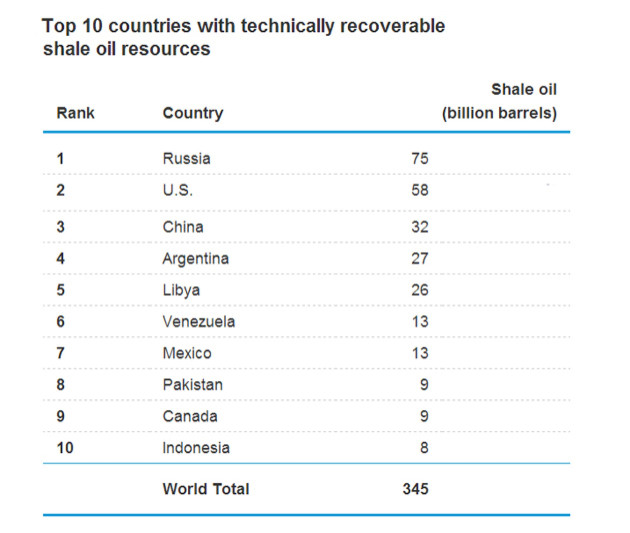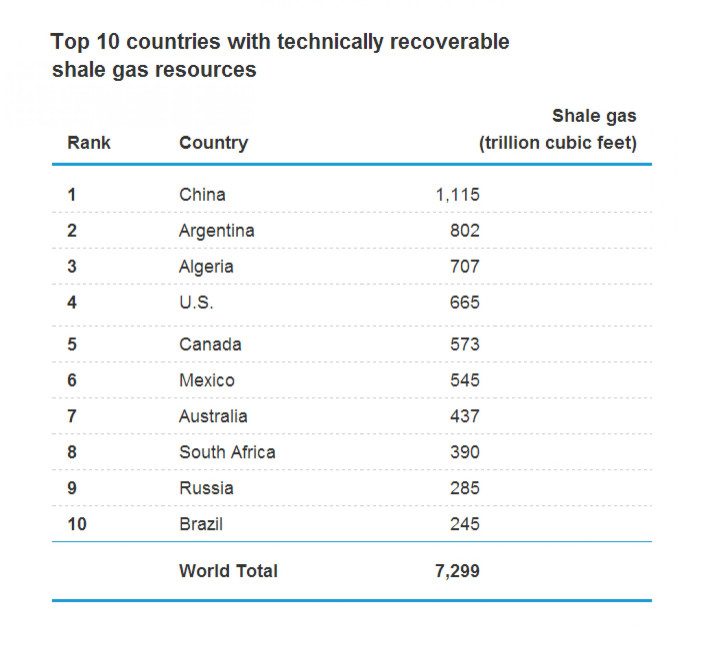[MAP] Here’s Where We Know Extractable Shale Oil And Gas Deposits Exist In The World; The Latest List Nearly Doubles The Number Of Countries With Known Deposits

Did you know that Pakistan has as much recoverable shale oil as Canada? Or that South Africa has more shale gas resources than Russia?
That’s some of the insight into global resources that's included in a new assessment by the U.S. Energy Information Administration, which updates a two-year-old study by nearly doubling the confirmed number of global shale formations that have extractable oil and natural gas deposits and adding nine new countries with proven reserves.
We now know that the world has 137 shale formations in 41 countries with technically recoverable fossil fuel, a figure that is profoundly changing the global energy market.
Here’s the EIA’s explanation for updating the previous assessment:
“There were two reasons for pursuing an updated assessment of shale resources so soon after the prior report. First, geologic research and well drilling results not available for use in the 2011 report allow for a more informed evaluation of the shale formations covered in that report as well as other shale formations that it did not assess. Second, while the 2011 report focused exclusively on natural gas, recent developments in the United States highlight the role of shale formations and other tight plays as sources of crude oil, lease condensates, and a variety of liquids processed from wet natural gas.”
Here’s the most updated map of where in the world shale deposits are giving up – or could give up in the future – natural gas and so-called tight oil extracted from shale deposits.

Here are the countries with the largest known reserves of shale oil.

And here are the top countries for shale gas:

The EIA estimate is based on all forms of so-called tight oil, which refers both to shale deposits and other forms of low permeability “tight” deposits. All shale extraction projects require water-intensive fracking procedures that can pose a challenge to extracting gas in arid climates.
Fracking is controversial among environmentalists because of the water issue and because of the additives used in the process. Last week Boulder, Colo., became the latest municipality in Colorado to oppose Gov. John Hickenlooper’s drive to increase fracking in the state. The city passed a one-year moratorium on the procedure. The New York State Assembly passed a similar two-year moratorium in March.
Proponents deny the detrimental environmental impact of fracking and point to natural gas as a cleaner alternative to coal and a way to boost energy independence, especially in the United States and China.
© Copyright IBTimes 2024. All rights reserved.












